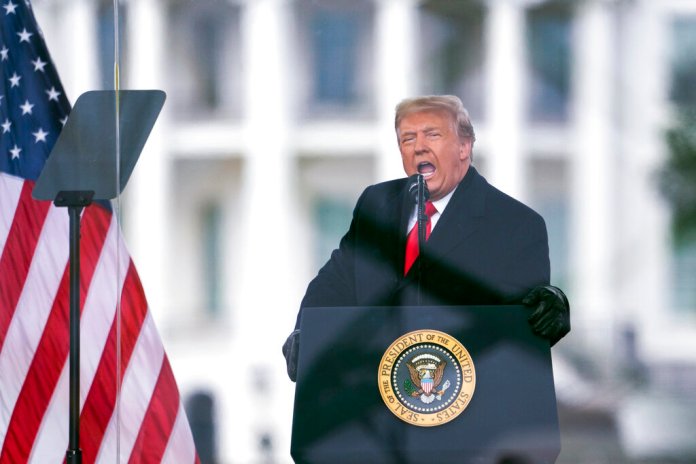Court Ruling Could Lock States Into Medicaid Expansion Forever
A recent June 27 court ruling by Chief Judge James Boasberg poses significant challenges for U.S. health care and federalism, particularly regarding state Medicaid programs. The ruling, which has largely gone unnoticed due to concurrent events like presidential debates, could make it difficult for states to implement conservative changes to their Medicaid programs and may effectively bind states to the Medicaid expansion under Obamacare.
The case originated from the Trump administration’s granting of a Medicaid waiver to Indiana, which had been dormant for four years amid the implementation of work requirements. Under Biden’s administration, these work requirements were eliminated, leading Indiana to seek to resume its Medicaid waiver known as the Healthy Indiana Plan. However, Judge Boasberg ruled against the extension, emphasizing that the focus of waiver approvals must be on increasing coverage compared to traditional Medicaid. His decision implies heightened regulatory scrutiny for states aiming to reform their Medicaid offerings to resemble private insurance or to implement small cost-sharing measures.
The ruling places Indiana’s Medicaid program in a precarious position as it planned to implement beneficiary contributions but now faces uncertainty following the court’s decision. The ruling also hints at the potential for states that previously expanded Medicaid to be unable to retract those expansions, effectively making able-bodied adults a permanent part of their Medicaid obligations.
this ruling could set a precedent that complicates future state efforts to modify Medicaid programs and may lock states into existing expansions, elevating the importance of federal oversight in Medicaid waiver approvals.
It has largely skipped the national press’s attention — perhaps because of the presidential debate that evening — but a June 27 court ruling could have far-reaching negative consequences for U.S. health care and federalism.
If higher courts uphold it, the ruling will not only make conservative changes to state Medicaid programs difficult to impossible, but it could also permanently lock states into Obamacare’s Medicaid expansion to the able-bodied.
Hoosier Waiver Nixed
The ruling, by Chief Judge James Boasberg of the federal district court in the nation’s capital, relates to a Medicaid waiver extension the Trump administration granted to Indiana. The challenge to the waiver had lain dormant for more than four years, during which time the Hoosier State paused implementing a work requirement, which the Biden administration eventually nixed outright upon taking office.
As state Medicaid programs began normalizing following public health panics during Covid, Indiana sought to resume the remaining elements of the Medicaid waiver known as the Healthy Indiana Plan, largely as the Obama administration had approved it back in 2015. Judge Boasberg had other ideas.
In striking down Washington’s extension of Healthy Indiana, Boasberg noted that the federal process of approving Medicaid waivers must maintain a nearly single-minded focus on the implications for coverage. In his view, “the relevant question” under federal law is “whether the [waiver] will increase coverage as compared to expanded Medicaid with no waivers.” Because Boasberg held that the Trump administration did not adhere to this standard in approving Indiana’s waiver, he vacated approval of the extension.
Dilemma for Other States
Under this logic, any attempt by a state to streamline or rationalize its Medicaid benefit offerings to more closely resemble private insurance coverage faces high hurdles to approval from Washington — and tough scrutiny from federal courts if approved. Attempts to require people to pay even a tiny portion of the costs of their own care, whether via modest premiums or copayments, likewise face new regulatory obstacles if the number of people receiving coverage and the amount of coverage constitute Medicaid’s primary, if not exclusive, objective.
Boasberg’s ruling did allow that “states do not have limitless finances to cover health care,” and that federal officials could, in theory, approve some state efforts to administer Medicaid more efficiently. But at minimum, the ruling would require both governors seeking conservative reforms to their Medicaid programs and federal officials looking to approve the same to go through far more bureaucratic hoops to justify their actions.
As it is, the decision has placed Indiana in limbo. The state had intended to resume beneficiary contributions on July 1, consistent with the parameters approved by the Obama administration nearly a decade ago. Instead, those changes remain on hold, with Indiana applying for a stay of Boasberg’s ruling, claiming it creates “considerable uncertainty” regarding its Medicaid program.
Are States that Expanded Medicaid Stuck?
The ruling also discussed the future of Healthy Indiana, the state’s name for its Obamacare coverage expansion to the able-bodied, in ways that might surprise other states that have agreed to expand. In addressing the argument that a waiver extension would promote coverage — because otherwise the state could end Healthy Indiana altogether — the judge wrote, “[I]t is not even clear that Indiana could de-expand Medicaid if it wanted to.”
This statement extends a line of thinking from Boasberg’s 2018 ruling regarding Kentucky’s work requirement. It suggested that once a state accepts Medicaid expansion, able-bodied adults become a permanent part of Medicaid, a responsibility the state cannot shirk without exiting Medicaid entirely.
That theory directly contradicts 2012 guidance from the Obama administration, which said states can enter or exit Medicaid expansion at their discretion. It also contains little factual support from the 2012 Supreme Court ruling that made Medicaid expansion optional in the first place.
Stay Away from Health Costs ‘Hotel California’
States like Georgia and Mississippi that spent the past year considering Medicaid expansion should view Boasberg’s ruling as a timely warning of the fiscal and legal perils awaiting should they acquiesce. The combination of much less flexibility for states regarding benefit packages, coupled with a potential inability to exit the Obamacare expansion, could turn Medicaid into a fiscal version of the Eagles’ “Hotel California” — states can check out any time they like, but they can never leave.
Chris Jacobs is founder and CEO of Juniper Research Group, a policy consulting firm based in Washington, and author of the book “The Case Against Single Payer.” He appeared in the 1995 “Jeopardy!” Teen Tournament and is on Twitter: @chrisjacobsHC.
" Conservative News Daily does not always share or support the views and opinions expressed here; they are just those of the writer."




